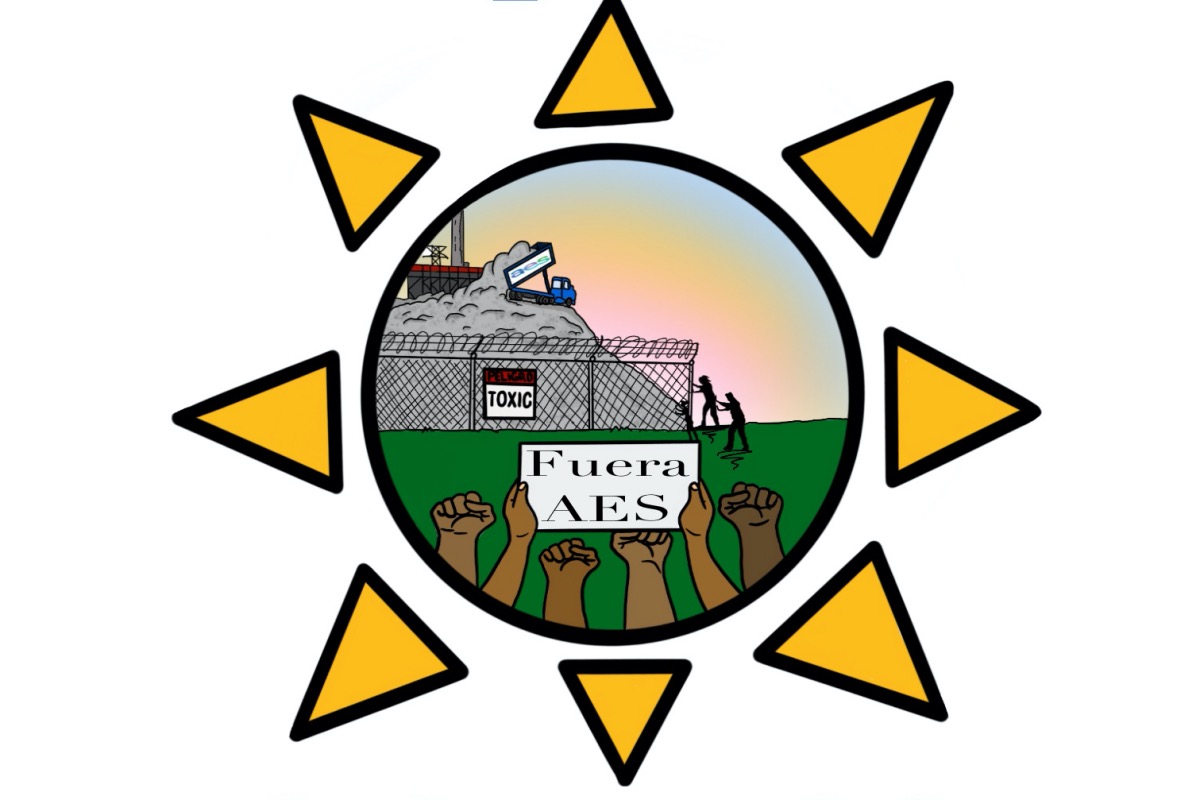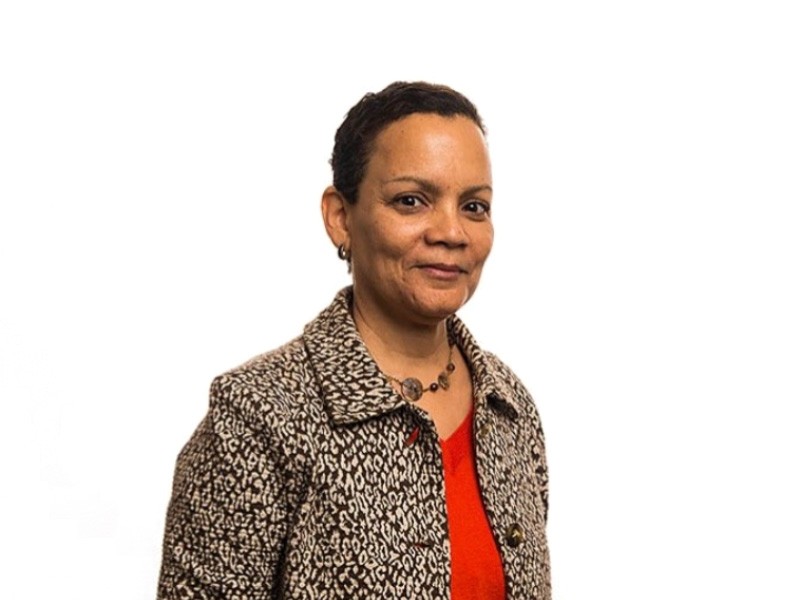

Mabette Colón Pérez, an undergraduate student who lives near the coal-fired power plant in Guayama, Puerto Rico, created the film’s logo.
Like so many other places on this planet, Puerto Rico’s entangled energy, climate, and environmental emergencies cannot be ignored a moment longer. As world leaders, activists, and others convene in Glasgow, Scotland for the UN Climate Change Conference (COP 26), the future of humanity is at stake.
People on the front lines of climate chaos have long documented that Black, Indigenous, and other people of color, coastal and rural regions, and low-income and low-wealth communities are most at risk. These disproportionate impacts stem from centuries of colonial and imperial violence, neoliberal austerity measures, environmental racism, racial capitalism, and many other oppressive systems and structures that treat subjugated communities as sacrifice zones.
Given these injustices, one might assume that individuals facing the most intense and frequent climate disruption consequences would be centered and taken seriously at this year’s event. However, as reported by independent news media outlet Democracy Now!, this convention is the whitest and most privileged of all UN climate conferences to date. The problem results from, at least in part, grave COVID-19 vaccine inequities and visa obstacles, which have barred the participation of numerous people from low-income areas.
Many delegates and those excluded from the conference claim that the decision to continue with the event, which runs from October 31 to November 12, is a deliberate effort to silence people who have the most urgent testimonies of suffering, struggle, and survival to share with COP 26 decision-makers. These same marginalized individuals have the tremendous potential to spark positive disruptions needed to make the climate conference something other than polite talk among elite politicians and their fossil fuel industry cronies, who maintain the cruel, lethal status quo.
Ruth Santiago and Jobos Bay
Fortunately, community attorney and activist Ruth Santiago, from Salinas, Puerto Rico, is attending the UN climate conference. Santiago is advocating for solar community projects that provide a radical alternative to the archipelago’s reliance on imported fossil fuels for 97 percent of the U.S. colony’s electricity needs. As a member of the White House’s Environmental Justice Advisory Council, Santiago is urging the Biden administration to “put its money where its promises are,” which she expressed during an interview at the climate summit.
Santiago knows well the importance of communicating to larger audiences the injustices that she and her neighbors in the Jobos Bay area of southeastern Puerto Rico confront daily. This region is home to many Afro-descendant people, who are toxically assaulted by noise, air, water, soil, and light pollution from the archipelago’s two most polluting fossil fuel plants: the U.S.-owned AES coal-fired power plant (carbonera) and the Aguirre Power Complex. Several studies link these toxic sites to serious health ailments and complications, including cancer, respiratory and cardiovascular diseases, and reproductive problems such as miscarriages.


Lawyer and environmental activist Ruth Santiago (Earthjustice)
A recent finding also revealed that hazardous metals contained in the lethal life cycle of coal have contaminated the south coast aquifer, which thousands of people rely on for their only source of potable water. Adding to this public health emergency, regular power outages disproportionately impact Jobos Bay communities, placing the lives of people who rely on refrigerated medication, dialysis, and oxygen therapy further in jeopardy.
Given these dire realities, Santiago highlights the imperative of supporting on-site solar community projects that include energy literacy, demand response, battery storage, and energy-efficient practices. She claims that billions of dollars in FEMA emergency relief funds, in response to the deadly and destructive 2017 hurricane season, should be applied in ways that refuse, rather than re-entrench, the current untenable situation. Such a major change involves transforming Puerto Rico’s precarious long-distance transmission and distribution system and ending its reliance on centralized power stations.
Puerto Rico’s energy infrastructure is vulnerable to major and prolonged power disruptions, evinced by hurricanes María and Irma and the 2020 earthquakes. And conditions have only worsened with LUMA Energy’s takeover of many key functions of the Puerto Rico Electric Power Authority. This neoliberal deal involves Canadian and U.S. business interests that seek to profit from privatizing the public power authority and FEMA funds. The imposition of LUMA Energy has been met with widespread protests, as workers, community members, engineers, professors, grassroots organizers and many others have raised their voices against the increase in electric bills, ongoing blackouts, inaccessible corporate communication, and much more.
To create conditions for alternative relationships, Santiago argues that investments should follow the civil society proposal of Queremos Sol (We Want Sun). For self-determined climate, environmental and energy justice to flourish, communities must be responsible for planning, installing, maintaining, and educating each other about distributed rooftop solar to transform power in all forms.
‘El Poder el Pueblo’
One way that Santiago and some of her neighbors in the Jobos Bay area have sought to call attention to the injustices they face and viable solar community alternatives is in the documentary El poder del pueblo: una lucha colectiva por la vida y el medioambiente (The Power of the People: A Collective Struggle for Life and the Environment). The film is directed by José Luis “Chema” Baerga Aguirre, with whom I co-produced the documentary.
In consultation with several community and film crew members, Santiago, anthropologist Dr. Hilda Lloréns, who acted as an advisor for the film, and I wrote a description about the project’s collaborative creative process, which unites Puerto Ricans living in the archipelago and the U.S. diaspora:
“The film centers the experiences of Jobos Bay residents in southeastern Puerto Rico. Community members strive to live good lives, while resisting the ongoing toxic assault caused by power plants and other extractivist industries that poison human and more-than-human bodies in this beautiful region and ecosystem. The Jobos Bay area residents featured in this film record and amplify their voices by literally taking power into their own hands, confronting environmental racism and injustice. El poder del pueblo documents grave problems and urgent alternatives in the form of solar community projects that transform both electric and people power. As a methodological intervention and a form of refusal, film production team members challenge (neo)colonial filmmaking and research that often targets their communities via the extraction of images, stories, and testimonies. El poder del pueblo is by and for the Jobos Bay community and was made with support from longtime coalitional partners in the US Puerto Rican diaspora. These collective energies radically reimagine community documentary work and join with other people and places throughout the world struggling for self-determined environmental, climate, and energy justice.”
Information about the full production team and how to access the documentary are available on the film’s bilingual website.
The lack of meaningful, radical action at past UN climate meetings suggests that Santiago and other delegates facing the greatest negative consequences of climate chaos and extractivist relations at home will find COP 26 to be another disappointment. However, this conference can perhaps provide these individuals and groups organizing possibilities to build and strengthen coalitions that cultivate relations beyond the dictates of U.S. colonialism, imperialism, and racial capitalism. This people-power marks a crucial site for generating collective energies for toppling systems and structures that harm the wellbeing and existence of communities like those featured in El poder del pueblo.
***
Catalina M. de Onís is an assistant professor in the department of communication at the University of Colorado Denver. Her book Energy Islands: Metaphors of Power, Extractivism, and Justice in Puerto Rico is informed by her many years of coalition work with grassroots group members of the Iniciativa de Ecodesarrollo de Bahía de Jobos (Ecodevelopment Initiative of Jobos Bay) in the southeastern coastal region of Puerto Rico’s largest island. She also co-authored a bilingual children’s book titled La justicia ambiental es para ti y para mí/Environmental Justice Is for You and Me.


